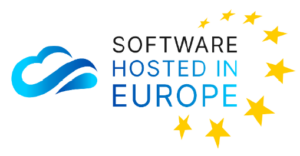Businesses need more than just a way to accept payments in an increasingly digital world—they need reliable infrastructure, compliance, and future readiness. That’s where a payment service provider (PSP) comes in. This article breaks down what PSPs do, how they’re evolving across Europe, and what merchants should expect by 2026.
What Is a Payment Service Provider (PSP)?
A payment service provider is a licensed third-party platform that enables businesses to accept electronic payments. These can include card payments, direct debits, bank transfers, mobile wallets, and even recurring subscriptions.
PSPs act as a bridge between merchants, consumers, banks, and card networks. They handle:
-
Payment gateway services
-
Fraud prevention and risk checks
-
Tokenization for data security
-
Multi-currency and international transaction support
-
Reconciliation and settlement services
By consolidating all these features into a single solution, PSPs simplify payment acceptance for businesses of any size.
The Changing Role of PSPs in Europe
1. Regulatory Shifts: PSD3, PSR & Instant Payments
The European Union is overhauling its payment legislation with the upcoming Payment Services Directive 3 (PSD3) and Payment Services Regulation (PSR). These laws, expected to be finalized by 2025, aim to:
-
Strengthen fraud protection (e.g., Strong Customer Authentication or SCA)
-
Open access to account information and APIs
-
Improve transparency around payment fees
Additionally, the Instant Payments Regulation mandates that all euro payments across the EU must settle in seconds, 24/7. By 2026, real-time payments will be the new standard for PSPs.
2. The Decline of Cash
Across Europe, cash is fading fast. In countries like Sweden, Norway, and the Netherlands, digital payments dominate everyday transactions. PSPs are stepping in to support this shift with mobile-friendly, contactless, and digital-first payment options.
3. European Payment Sovereignty
The launch of the European Payments Initiative (EPI) and its digital wallet Wero reflects Europe’s desire for payment independence. PSPs are expected to integrate with EPI and support emerging domestic P2P solutions by 2026.
4. Digital Euro on the Horizon
The European Central Bank is actively exploring a digital euro, with political agreements expected by 2026. PSPs will play a critical role in integrating this central bank digital currency (CBDC) into existing infrastructure—particularly for offline and person-to-person transactions.
Key Trends for Payment Service Providers by 2026
Real-Time Payments as Standard
SEPA Instant Credit Transfers are no longer optional. PSPs must offer real-time settlements with verification-of-payee features to meet EU mandates.
Digital Wallet Integration
Consumer demand for Apple Pay, Google Pay, PayPal, and emerging wallets like Wero is rising. PSPs are responding by offering tokenization and one-click checkout to enable secure, seamless transactions.
Open Finance and API Access
Under PSD3 and FIDA, open finance will become mainstream. PSPs must offer APIs that allow third parties to access payment data securely—unlocking innovation while remaining compliant.
Offline-Ready Infrastructure
Nordic countries are developing offline-capable card systems to maintain resilience. PSPs must prepare to offer payment solutions that work even during connectivity failures.
Integration Guide: What Enterprises Need to Know
For businesses choosing a PSP, integration capabilities are critical.
API Architecture
Modern PSPs use RESTful APIs with:
-
Sandbox environments for testing
-
Webhooks for real-time payment updates
-
SDKs in languages like Java, PHP, and Python
They also support headless integration for full control over the customer experience.
ERP and Accounting Integration
PSPs should sync with popular ERP platforms like SAP, Datev, and Oracle. Features such as invoice automation, tax compliance, and settlement file exports help enterprises maintain financial accuracy.
Security Certifications Every PSP Must Have
PCI-DSS Level 1
This is the highest standard for secure credit card processing, ensuring encrypted data handling, tokenization, and regular audits.
ISO/IEC 27001
This global certification demonstrates a robust information security management system, covering data governance, threat mitigation, and business continuity.
BaFin, FCA, ACPR Licenses
In Europe, PSPs must hold licenses from national financial authorities. These licenses indicate strict compliance with AML, consumer protection, and capital adequacy requirements.
Technical Infrastructure: What’s Under the Hood
Cloud-Native and Scalable
Best-in-class PSPs use cloud-native platforms with container orchestration (e.g., Kubernetes), enabling high availability and automatic scaling during peak periods.
Uptime & Resilience
Look for PSPs offering 99.99% uptime, geo-redundant infrastructure, and live monitoring dashboards. Failover systems are essential for mission-critical commerce.
Secure Vaulting & Tokenization
Recurring billing and subscriptions depend on secure vault systems. Features like PCI token storage, encrypted PAN masking, and Bring Your Own Key (BYOK) policies add an extra layer of control and security.
Frequently Asked Questions (FAQs)
Q1: What is the difference between a PSP and a payment gateway?
A payment gateway focuses on authorizing transactions. A PSP offers this plus settlement, reconciliation, risk management, and multi-currency processing.
Q2: Is a PSP required to be licensed in the EU?
Yes. Under PSD2 and soon PSD3, all PSPs must be licensed by a national competent authority (e.g., BaFin in Germany, FCA in the UK).
Q3: How are PSPs adapting to instant payments?
Leading PSPs now support SEPA Instant Credit Transfers and are building systems for 24/7 real-time processing, in line with EU regulations.
Q4: Will the digital euro change how PSPs operate?
Yes. PSPs will need to integrate the digital euro for both online and offline use cases, which requires updates to infrastructure and security protocols.
Q5: Can a PSP integrate with ERP systems?
Absolutely. Modern PSPs provide API and plugin support for ERP, CRM, and accounting systems—improving automation and reporting.
Q6: Are PSPs responsible for fraud detection?
Yes. Most PSPs offer fraud prevention tools including SCA, machine learning risk scoring, and chargeback management systems.
Conclusion
As Europe’s payment ecosystem heads into a regulatory and technological overhaul, the role of a payment service provider has never been more critical. Whether you’re an e-commerce platform, a fintech, or an enterprise-level merchant, selecting the right PSP means securing your compliance, ensuring operational resilience, and unlocking future growth.
Looking for a trusted, BaFin-licensed partner to future-proof your payments? Talk to Novalnet today and streamline your PSP integration with full compliance.

Antony Robinson is an experienced IT expert, information architect and a customer experience evangelist. He has over 30 years of experience in web technologies, user experience, media, and marketing. Antony is currently the CMO of Novalnet AG, a fintech company in Germany. As CMO, he leads the company’s marketing strategy and fosters collaborations. Antony’s expertise and dedication to technology and innovation make him a valuable leader in his field.












